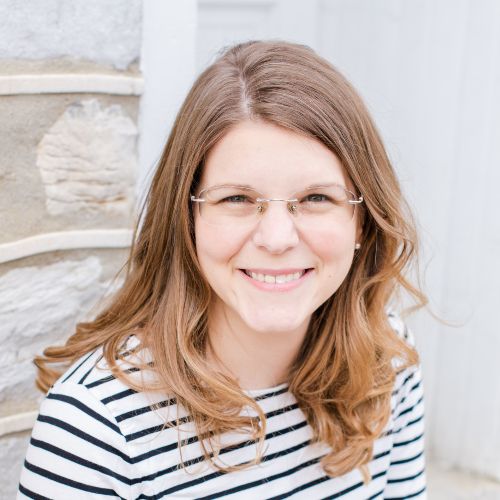Everything I’ve learned about self-care for teachers I’ve learned from a blank wall.
In my first year of teaching, I would come home to my one-bedroom apartment and stare at the white wall next to my tiny, second-hand TV. I wouldn’t turn the TV on. I’d just sit on the couch and stare.
It was a ritual that I started during the first month of school— that crucible for all new teachers who are learning everything about themselves, their teaching style and philosophy, their students, their school, and their colleagues.
I was utterly exhausted from teaching juniors in a hot, unventilated classroom. After a day of constant noise and activity, I needed quiet and calm. Decompressing in my living room gave me the space I needed to process the day so I could teach the next. It was my way of practicing teacher self-care.
Why Is Self-Care for Teachers Important?
It’s no surprise that teaching is a stressful, intense career. From increasing public scrutiny to the systemic lack of resources, there are many reasons educators are burning out at higher rates than any other profession.
Perhaps teacher burnout is even more stressful and painful because so many educators see their work not only as a job but also as a calling. Often, teachers take on more and do more because they want what’s best for their students.
The truth is, burned-out teachers aren’t what’s best for their students or themselves. Teachers experiencing high stress and fatigue are more likely to:
- experience feelings of cynicism, detachment, and isolation
- be less productive and more ineffective in the classroom
- endure depression and anxiety with manifestations of anger, forgetfulness, and extreme exhaustion
Self-care will not change your school system and it will not change societal issues that leak into your classroom. Self-care will not prevent a student from punching you in the face. (Been there, done that). It will not get your student affordable health care so they can be treated for a heart condition. (Also been there, done that). It will not prevent political discourse blaming teachers from making you feel frustrated and small. (Been there, done that too).
But self-care will give you the tools to live a holistically healthy life so you can be your best for your family, friends, yourself, and, of course, your students.
More Like This
Discover some quick tips, backed by science, to help take some of the strain off when the pressure’s on. You’ve got this!
What Are the Four Pillars of Self-Care?
When it comes to self-care for teachers, we’ve got to nurture our whole selves – body, mind, and spirit. There are four main pillars of self-care that experts talk about:
- Physical
- Emotional/Social
- Psychological
- Spiritual
Keeping each one strong can help you handle stress, boost resilience, and find balance.
Physical: How are you caring for your body?
From water intake goals to step counts, these physical forms of self-care are often the easiest to quantify. But caring for your body is more than a checklist of vitamins, calories, and workouts. True physical self-care is about listening to your body and its responses and then readjusting. Focus on:
- Eating and drinking
- Movement
- Sleep and rest
Emotional/Social: How are you caring for your heart?
Caring for your emotions is about how you experience the world, think about yourself, and relate to others. Often, we’re conditioned to ignore hard emotions and to deal with them only when they’ve become too big and destructive to push to the side. Focus on:
- Connection
- Self-affirmation
- Boundaries
Psychological: How are you caring for your mind?
Caring for your mind is so important, especially for educators dealing with difficult situations. Practicing psychological hygiene can offer benefits like increased creativity and improved mood. Focus on:
- Reflecting on how you think
- Accepting help
- Caring for your mind, including taking prescribed medications
Spiritual: How are you caring for your spirit?
Caring for your spiritual wellness is fluid, individual, and personal. For some, spirituality is linked to religious beliefs and rituals. For others, activities like mindfulness, meditation, and other practices occupy a spiritual space. Focus on:
- Reflective, routine practices like meditation or prayer
- Practicing gratitude and/or mindfulness
- Thinking about your meaning, purpose, and belonging
- Practicing visualization or adopting a mantra
More Like This
No time to meditate? Think again! Just a few minutes in bed every day is all it takes to give you a boost.
Self-Care for Teachers: 20 Tips from a Teacher Who’s Been There
Cultivate joy
Pillars: Psychological, Emotional, Spiritual
Your classroom and teaching practice are yours. Infuse your day with touchpoints that make you happy. Here are a few examples:
- Listen to your favorite playlist while you grade. Music has many positive effects on the brain.
- Hide inside jokes in your lessons (like using the first names of friends and family in word problems)
- Treat yourself on Fridays with a snack at the end of the day
- Compliment every student who comes into your classroom
Find someone who gets it
Pillars: Psychological, Emotional
I was lucky to have colleagues as friends. We could vent, laugh, and cry together because we knew how hard (and rewarding) teaching in our school was. We could also act as mentors to each other—advising what worked for us and what didn’t—so we could move past the “venting stalemate” that often happens. That’s the sort of self-care for teachers that’s invaluable.
Creating relationships is work, but it’s worth it. Try these ideas for finding your people.
- Get involved at your school. You don’t have to do a lot, even chaperoning one event could help you connect with other staff members in a less structured setting.
- Check in with your college. Your alma mater may offer in-person or online networking opportunities for alumni.
- Broaden your horizons. Schools are teeming with adults who are in the trenches with you, but they can often be overlooked. I enjoyed the camaraderie and perspectives that came from my relationships with resource officers, custodians, cafeteria workers, librarians, social workers, counselors, coaches, and support staff.
- Go online. From forums to podcasts, there are plenty of virtual ways to connect with other educators, no matter where they teach.
Create boundaries
Pillars: Physical, Psychological, Emotional
Teachers can cart their work home, so it’s easy to feel like you’re always “on.” That’s just not sustainable. Take time to create intentional boundaries, like:
- I will only say “yes” to something if I say “no” to something else.
- I will do a 30-minute workout three days a week, and that’s non-negotiable.
- I will set a timer for one hour and grade uninterrupted. After that, I’ll spend the rest of the evening with my partner.
- I will make Saturday night family night. No exceptions.
Forgive yourself
Pillars: Psychological, Emotional, and Spiritual
Often, we hold ourselves to ridiculously high standards. If that sounds familiar, make a point to release yourself from feelings of guilt, inadequacy, or frustration. Try these rituals:
- Reflect on your day in the evening. If there are things you need to correct, plan how you’ll do that.
- Create a habit of apologizing to students if you’ve wronged them. Not only is it good for relationships, it offers your students a healthy model for how to do the same.
- Let your mistakes go. If you find yourself obsessing over mistakes, remind yourself that you’re human and humans aren’t perfect.
Prioritize a physical wellness goal
Pillar: Physical
It can be really hard to set a physical wellness goal as a teacher. Drink more water? Cool, but when is there time to use the restroom? Exercise more? Okay, but first there are 100 essays to grade. Your goal doesn’t have to be huge; consistency is key. These small, but powerful, ideas might just work for you:
- Schedule your annual healthcare appointments. Make them non-negotiable in your calendar.
- Be aware of your movement. Make a point to use the stairs even when you don’t have to. Park at the edge of the parking lot to get in some extra steps. If you often sit while students work, move around the room instead.
- Commit to one small, healthy habit every day. Make it attainable and concrete, like eating a salad with every meal, or going for a 30-minute daily walk.
Use your resources
Pillars: Physical, Emotional, Psychological, Spiritual
In recent years, people have begun to recognize the strain teachers are under. If your work is having an adverse impact on your mental health, you may already have access to resources and programs to support you:
- Teachers’ unions. Some teachers’ unions provide mental health resources free with your membership. The National Education Association allows for one year of free access to the NEA Mental Health Program. The American Federation of Teachers provides free trauma counseling.
- Your health insurance provider. Your health insurance could offer a number of free counseling sessions through the Employee Assistance Program (EAP), as well as coverage for face-to-face, group, phone, and/or video therapy sessions.
Important
There are some experiences, feelings, and situations that require professional help. If you find yourself in crisis, call or text 988 to be connected to the national Suicide and Crisis Lifeline, or use their online chat program.
For teachers, self-care is about doing what works for you, equips you with support, and gives you breathing room so you can live a well-rounded, less stressful life while giving your best to your students.

Joanna Guldin-Noll spent years teaching at a Baltimore high school, pioneering the school’s first AP English Language and Composition course, garnering thousands in grants for her students, and teaching American Literature, honors, and recovery courses. With a Master’s in Secondary English Education from Johns Hopkins, she was an adjunct faculty member and portfolio coach for the School of Education’s master’s program and served as a consultant for educational start-ups. She lives in Pennsylvania with her husband John and her puppy Albus.




